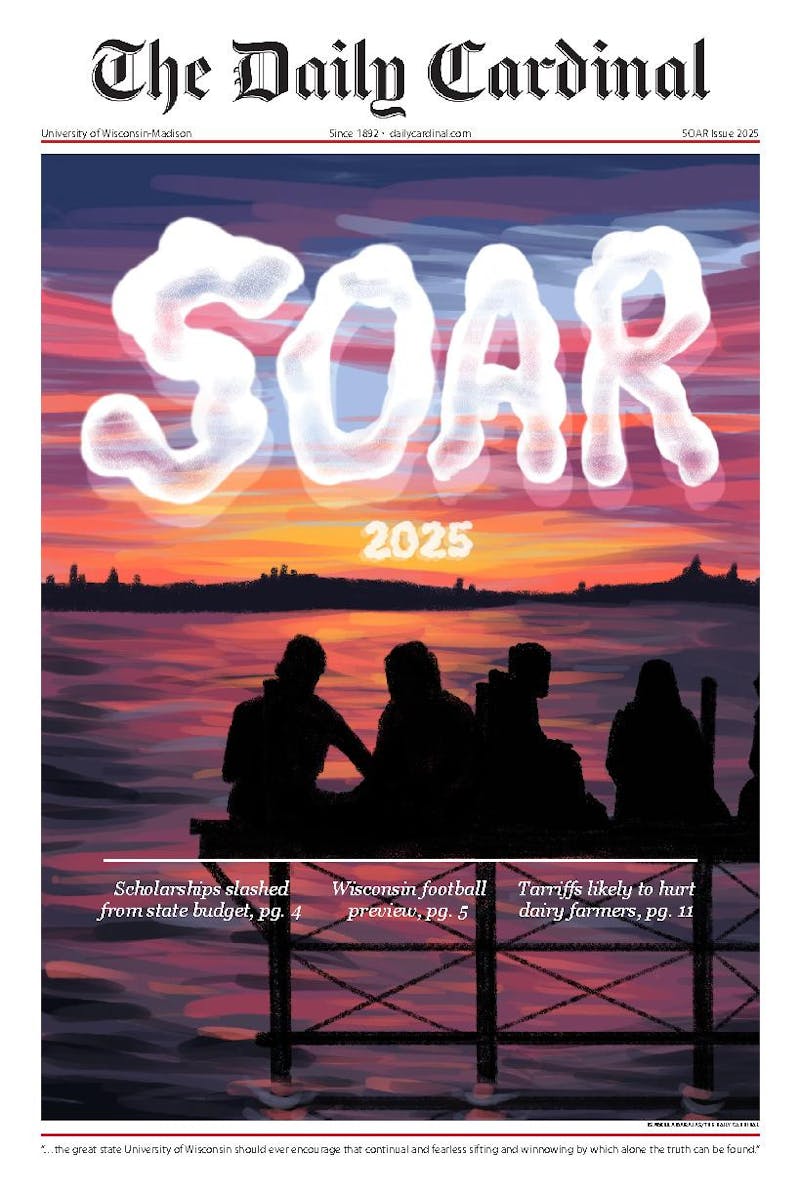Sarah LaBorde, a UW-Madison junior and Carson Desk supervisor, doesn’t like to glorify her role in upholding vital infrastructure and allowing university life to persist amid the COVID-19 pandemic. For LaBorde, going into work means monitoring residence hall desk functions and staff performance — not saving the world.
“I guess every day we're doing things so that everything else can operate, and that's true about facilities,” said LaBorde. “That's true about a lot of housing. When I think of ‘essential,’ I really do think of frontline workers.”
These workers, like LaBorde, don’t ask to be thanked for completing their duties, knowing well the potential risks that come with in-person work.
Employees within the Division of University Housing at UW-Madison demonstrated the resilience and adaptability needed to operate an open campus at the start of the 2020-21 academic year. About 1,700 employed students and 450 career staff work across Housing departments — Residence Hall Facilities, Residence Life, Dining & Culinary Services, University Apartments and Administration — that provide nearly 8,000 undergraduate students with ample living space and resources, according to University Housing.
Kevin Hoblit, a UW-Madison food service manager and unit chef at Liz’s Market, began working for the university in 2004. Hoblit continued to report for in-person work last March when campus facilities closed and courses shifted to remote instruction.
“We [dining and culinary services] were considered frontline workers, and we planned [on] students living in the dorms,” Hoblit said.
Shifting to prepackaged condiments and disposable silverware were some initial changes made by food service staff on campus last spring, according to Hoblit. The dining halls also installed physical barriers between servers and students to mitigate exposure while distributing meals.
Improved protocols mitigate risk for members of the food supply chain, but Hoblit never felt he was at serious risk of COVID-19 exposure.
“It's kind of like you felt just as much in danger going to the grocery store or into a gas station,” he said. “You know you can come in contact with it [COVID] pretty much anywhere, so I don't think work was ever considered, or at least I did not feel like I was in more danger at work.”
Unlike Hoblit, LaBorde started working for desk services during the thick of the pandemic last August.
“I started right in the midst of the pandemic during move in actually at the desk,” Laborde said, noting that she now holds a hybrid role as desk supervisor. “It really gave me that approach from what things were like right from the start of the pandemic and desk services and really appreciation for that.”
She works about 20 hours per week in her current role, and approximately half of those are completed in person.
“But then there are things that you have to go in [for] that deal with packages and keys and resident issues, so I would say that I try and get into the desk at least three days a week at a minimum,” she said.
LaBorde said her concerns about COVID-19 exposure at work were elevated when she worked as regular desk staff during the August move-in, assisting thousands of people who recently arrived in Madison from across the country.
Azul Kothari, a UW-Madison junior and house fellow in Sellery Residence Hall, experienced even greater concern about the possibility of contracting COVID-19.
“Sellery ended up going into a lockdown,” Kothari said, referring to a two-week lockdown of two campus residence halls in late September. “That’s when I was really convinced that I was going to get COVID. I just saw it as inevitable.”
Both Kothari and LaBorde spoke of witnessing residents relocate to isolation housing, presenting their room keys at front desks and avoiding close contact with others.
“Sometimes you’d be waiting for the elevator, and the person said ‘You go before me. I’m actually going to go to isolation housing,’” Kothari said.
Although Kothari lives in a hall with undergraduate students, most of his in-person interactions with them were the result of rule enforcement or spontaneity given gathering restrictions. He aims to create a positive environment for residents.
Ultimately, essential employees in University Housing work to foster safe living environments in which undergraduate students can learn, grow and make friends. They strive to meet the needs of resident inquiries and package deliveries, and they work to provide students with nutritious meals.
“In general, for us at Housing, ‘essential worker’ means that we need to show up everyday,” Hoblit said, noting that dining staff must provide students with daily opportunities to eat breakfast, lunch and dinner.
LaBorde, Hoblit and Kothari are three out of over 2,000 University Housing employees working to keep campus running despite potential health and safety risks. They do so for the good of the community, specifically the students living and learning at UW-Madison.
Jessica Sonkin is a former managing editor of The Daily Cardinal. She previously served as the news manager and campus editor. She is now a desk assistant at Fox News. Jess excels at her work and her leadership skills. Any future office would be lucky to have her as a co-worker or mentor.






